All Content Copyright 2025. All Rights Reserved
Connect with Pristyn Care
Book free appointments with minimum wait-time & verified doctor details
If you are suffering from vision loss or have any other signs of cataracts, contact the best cataract surgeon in India. Get advanced and minimally invasive treatment for cataracts under the care of the best eye doctors.
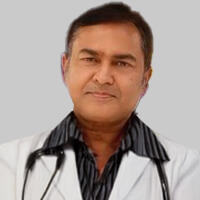
General Surgeon - 33 Yrs. Exp.
MBBS, MS-General Surgery
Hospital(s): ![]() Pristyn Care
Pristyn Care
Dr. Sunil Gehlot is an expert and experienced General Surgeon with over 30 years of experience in the field. He specializes in a wide range of general surgical procedures including gastrointestinal surgeries, hernia repair, appendectomies and other soft tissue surgeries. Dr. Gehlot completed his MBBS in 1992 and MS in General Surgery in 1999 from Nagpur University, Maharashtra. With a long-standing commitment to patient-centered care, he is now associated with Pristyn Care, where he continues to bring his extensive surgical expertise and compassionate approach to a broader patient base. He began his career as a surgeon at Chaitra Hospital, where he served for nearly three years. Since 2002, he has been successfully managing his own private clinic, offering surgical care to patients with a variety of conditions. Dr. Gehlot is known for his calm demeanor, clinical precision, and ability to handle both routine and complex surgical cases. Over the years, he has become a trusted name in Indore and surrounding regions for general surgery, particularly for his ethical approach and thorough post-operative care. Fluent in Hindi and English, Dr. Gehlot ensures his patients are well-informed and comfortable throughout their treatment journey. He is registered with the Indian Medical Registry. At Pristyn Care, Dr. Gehlot is committed to delivering advanced surgical care in a safe, modern, and patient-focused environment.
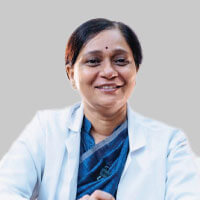
Gynaecologist - 33 Yrs. Exp.
MBBS, MS-Obs & Gynae | Chief Consultant – IVF & Fertility Sciences
Hospital(s): ![]() Pristyn Care
Pristyn Care
Dr. Ila Gupta is a highly respected name in the field of Reproductive Medicine and Assisted Reproductive Technologies (ART), with over 30 years of experience in infertility treatment. She was honored with the prestigious Dr. APJ Abdul Kalam Health Award 2023 in recognition of her exceptional contributions to reproductive health and fertility care. Based in Delhi, Dr. Gupta is widely regarded as one of the best IVF specialists in India, known for her dedication, clinical excellence, and patient-centric approach. Her core areas of expertise include Infertility, In Vitro Fertilization (IVF), Intra-Cytoplasmic Sperm Injection (ICSI), Donor Egg IVF, Surrogacy, and Endoscopy. Over the course of her distinguished career, she has successfully handled more than 5,500 complex cases, offering hope and joy to countless families. Her treatment protocols are individualized and evidence-based, designed to optimize fertility outcomes with compassion and precision. Dr. Ila Gupta has received advanced training from leading global institutes in Germany and France, and is a pioneer in introducing cutting-edge techniques such as Platelet-Rich Plasma (PRP) therapy and Preimplantation Genetic Screening/Diagnosis (PGS/PGD) in India. These innovations have significantly improved success rates—up to 78% in some cases—by ensuring higher chances of healthy, full-term pregnancies with genetically sound embryos. Dr. Gupta’s relentless pursuit of excellence, deep empathy for patients, and commitment to adopting the latest advancements make her a trusted leader in fertility care both in India and internationally
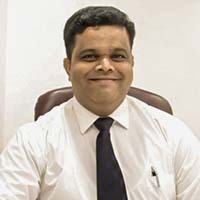
General Surgeon - 26 Yrs. Exp.
MBBS, MS - General Surgery
Hospital(s): ![]() Pristyn Care
Pristyn Care
Dr. Amol Gosavi is an expert and experienced General Surgeon, Advance Laparoscopic Surgeon, Advance Laser Proctologist with an experience of 23 years, and speializes in Proctology, Laparoscopy, Urology, and Vascular. He graduated and obtained his MBBS degree from King Edward Memorial Hospital and Seth Gordhandas Sunderdas Medical College in 1999, and then his postgraduate MS degree from King Edward Memorial Hospital and Seth Gordhandas Sunderdas Medical College in 2004.Currently, he is practicing at Pristyn Care Clinic in Mumbai. He is fluent in English, Hindi, Marathi, and Gujarati and provides compassionate care for all his patients to ensure complete recovery. He has been commended by his patients for his caring nature, hard working attitude, and willingness to be there for them - any time of day and night. He provides treatment for the following - Piles, Fissure, Fistula, Abscess,Pilonidal Sinus,Urethral Stricture, Erectile Dysfunction, Urinary Tract Infection, Urinary Incontinence, Balnitis, Phimosis, Paraphimosis, Umbilical Hernia, Inguinal Hernia, Incisional Hernia, Hiatus, Gallstones, Hydrocele, Vascular, Varicose Veins, Foot Ulcer, Varicocele, and other diseases. He is registered in the Indian Medical Registry with the license number 2001031847. He strives to provide advanced medical care in a comfortable and holistic environment for all patients coming to him for treatment.
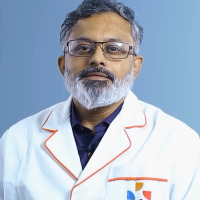
General Surgeon - 26 Yrs. Exp.
MBBS, MS - General Surgery
Hospital(s): ![]() Pristyn Care
Pristyn Care
Dr. Milind Joshi is an expert and experienced General Surgeon, Proctologist, and Laparoscopic Surgeon with an experience of 23 years, and specializes in Proctology, Vascular, Laparoscopy, and Urology. He graduated and obtained his MBBS degree from Grant Medical College and Sir JJ Group of Hospitals, Mumbai in 1999, and then his postgraduate MS degree from Grant Medical College and Sir JJ Group of Hospitals, Mumbai in 2006.Currently, he is practicing at Pristyn Care Clinic in Pune. He is fluent in English, Hindi, Marathi and provides compassionate care for all his patients to ensure complete recovery. He has been commended by his patients for his caring nature, hard working attitude, and willingness to be there for them - any time of day and night. He provides treatment for the following - Piles, Fissure, Fistula, Abscess, Pilonidal Sinus, Anal Polyps, Anal Warts, Rectal Prolapse, Balnitis, Phimosis, Paraphimosis, Umbilical Hernia, Inguinal Hernia, Incisional Hernia, Hiatus, Gallstones, Stent Removal, Cyst Removal, Hydrocele, Vascular, Varicose Veins, Thrombosis, Dvt, Diabetic Foot Ulcer, Foot Ulcer, Varicocele, and other vascular diseases. He is registered in the Indian Medical Registry with the license number 2001103361. He strives to provide advanced medical care in a comfortable and holistic environment for all patients coming to him for treatment.
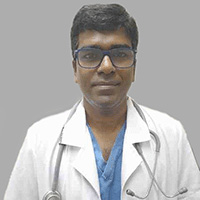
General Surgeon - 26 Yrs. Exp.
MBBS, MS- General Surgeon, FIAGES
Hospital(s): ![]() Pristyn Care
Pristyn Care
Dr. Shammy SS is an expert and experienced General Surgeon, Proctologist, and Laparoscopic Surgeon with an experience of 21 years, and specializes in Proctology, Vascular, Laparoscopy, and Urology. He graduated and obtained his MBBS degree from Trivandrum medical college, University of Kerala in 1999, and then his postgraduate MS degree from MKCG Medical college, Berhampur, Odisha in 2005. He have qualified with fellowship in Robotic surgeries in 2022. Currently, he is practicing at Pristyn Care Clinic in Pune. He is fluent in English, Hindi, Malyallam and provides compassionate care for all his patients to ensure complete recovery. He has been commended by his patients for his caring nature, hard working attitude, and willingness to be there for them - any time of day and night. He provides treatment for the following - Piles, Fissure, Fistula, Abscess, Pilonidal Sinus, Anal Polyps, Anal Warts, Rectal Prolapse, Balnitis, Phimosis, Paraphimosis, Umbilical Hernia, Inguinal Hernia, Incisional Hernia, Hiatus, Gallstones, Stent Removal, Cyst Removal, Hydrocele, Vascular, Varicose Veins, Thrombosis, Dvt, Diabetic Foot Ulcer, Foot Ulcer, Varicocele, and other vascular diseases. He is registered in the Indian Medical Registry with the license number 29144. He strives to provide advanced medical care in a comfortable and holistic environment for all patients coming to him for treatment.
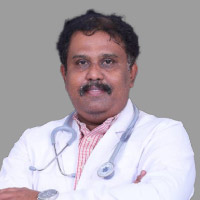
General Surgeon - 26 Yrs. Exp.
MBBS, DNB-General Surgery
Hospital(s): ![]() Pristyn Care
Pristyn Care
Dr. C.B. Dhamodhara Kumar is an expert and experienced General and Laparoscopic Surgeon with over 20 years of experience. He earned his MBBS from Thirunelveli Medical College, Tamil Nadu, in 2001 and his DNB in General Surgery from Voluntary Health Services, Chennai, in 2011. He has completed fellowships in laparoscopic and gastrointestinal endoscopic procedures, including FIAGES, EFIAGES, and FAGIE. Dr. Kumar has served as a Consultant General Surgeon at Prabhu Polyclinic, Pollachi, and Meenakshi Hospital, Thanjavur. His expertise includes appendectomy, cholecystectomy, hernia repair, trauma surgeries, and advanced endoscopic procedures. He is registered with the Tamil Nadu Medical Council and is a life member of the IMA, ASI, and IAGES. Fluent in English, Hindi, and Tamil, he is known for his excellent patient care and communication skills. Dr. Kumar is committed to providing comprehensive surgical solutions with precision and compassion. He has now joined Pristyn Care, bringing his vast knowledge and dedication to patient well-being. His focus remains on delivering advanced medical care in a supportive and comfortable environment.
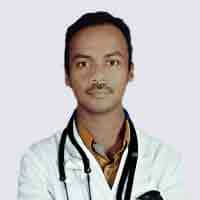
General Surgeon - 26 Yrs. Exp.
MBBS, MS-General Surgery
Hospital(s): ![]() Pristyn Care
Pristyn Care
Dr. Pravat Kumar Majumdar is renowned General Surgeon Specialist in Bhubaneswar. He practices at Pristyn Care Clinic, Bhubaneswar.
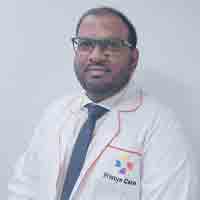
General Surgeon - 25 Yrs. Exp.
MBBS, MS, DNB- General Surgery
Hospital(s): ![]() Pristyn Care
Pristyn Care
Dr. Naveed Pasha Sattar is an expert and experienced General Surgeons, Laparoscopic Surgeon, Proctologist, Laser Specialist with an experience of 24+ years, and specializes in Laparoscopy, Vascular, Proctology, and Urology. He graduated and obtained his MBBS degree from Bangalore University in 2000, and then his postgraduate MS degree from Rajiv Gandhi university of Health Sciences, Karnataka in 2006 and then earned his DNB in General Surgery from National Board of Examinations, New Delhi in 2007. Currently, he is practicing at Pristyn Care Clinic in Bangalore. He is fluent in Hindi, English, and Malayalam and provides compassionate care for all his patients to ensure complete recovery. He has been commended by his patients for his caring nature, hard working attitude, and willingness to be there for them - any time of day and night. He provides treatment for the following - Piles, Fissure, Fistula, Abscess, Pilonidal Sinus, Anal Polyps, Anal Warts, Urethral Stricture, Erectile Dysfunction, Urinary Tract Infection, Urinary Incontinence, Umbilical Hernia, Inguinal Hernia, Incisional Hernia, Hiatus, Gallstones, Bariatrics, Hydrocele, Varicose Veins, Thrombosis, Dvt, Diabetic Foot Ulcer, Foot Ulcer, Varicocele, and other conditions. He is registered in the Indian Medical Registry with the license number 62374. He strives to provide advanced medical care in a comfortable and holistic environment for all patients coming to him for treatment.
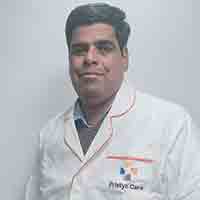
General Surgeon - 25 Yrs. Exp.
MBBS, MS, DNB- General Surgery
Hospital(s): ![]() Pristyn Care
Pristyn Care
Dr. Raja H is an expert and experienced General Surgeons, Laparoscopic Surgeon, Proctologist, Laser Specialist with an experience of 24 years, and specializes in Laparoscopy, Vascular, Proctology, and Urology. He graduated and obtained his MBBS degree from Kilpauk Medical College, Chennai in 2000, and then his postgraduate MS degree from Kilpauk Medical College, The Tamil Nadu Dr. M.G.R. Medical University in 2004, then earned his DNB in General Surgery from National Board of Examinations, New Delhi in 2004. Currently, he is practicing at Pristyn Care Clinic in Bangalore. He is fluent in Hindi, English, and Malayalam and provides compassionate care for all his patients to ensure complete recovery. He has been commended by his patients for his caring nature, hard working attitude, and willingness to be there for them - any time of day and night. He provides treatment for the following - Piles, Fissure, Fistula, Abscess, Pilonidal Sinus, Anal Polyps, Anal Warts, Urethral Stricture, Erectile Dysfunction, Urinary Tract Infection, Urinary Incontinence, Umbilical Hernia, Inguinal Hernia, Incisional Hernia, Hiatus, Gallstones, Bariatrics, Hydrocele, Varicose Veins, Thrombosis, Dvt, Diabetic Foot Ulcer, Foot Ulcer, Varicocele, and other conditions. He is registered in the Indian Medical Registry with the license number 93568. He strives to provide advanced medical care in a comfortable and holistic environment for all patients coming to him for treatment.
In India, cataracts are a very common disease and the primary cause of blindness. Cataracts usually develop in elderly people and lead to blurry vision, light sensitivity, night vision problems, and other symptoms that can significantly affect the individual’s life. The only treatment method for all types of cataracts is surgery. Cataract surgery is a safe and effective option to restore and preserve vision.
A cataract is the clouding of the eye lens, which makes it difficult for light to pass through and reach the retina. The eye lens is a clear, flexible structure that is made up of proteins. With age or due to some other reasons, the proteins in the lens may break down and form cloudy patches that interfere with vision.
Clouded vision can make it difficult to read, drive, or even perform other basic tasks. In general, people suffering from cataracts have a vision as though they are looking through a frosty or fogged-up window. The condition generally develops slowly and doesn’t impact vision in the early stage. However, with progression, it can eventually impair vision to a great extent. Therefore, it’s crucial to seek proper treatment for cataracts to prevent vision loss.
Typically, a cataract can develop at any age, but it’s more common in older people. Here are some common types of cataracts-
There are other less common types of cataracts as well that include:
In the initial stages, cataracts usually don’t present with symptoms. But as the condition progresses, the following symptoms may arise-
These symptoms can worsen over time, and in advanced cases, they can lead to significant vision loss or even blindness. If you are experiencing any of these above-mentioned symptoms, you are likely to need cataract surgery to address these problems. To undergo cataract eye surgery in India, consult the best eye doctor near you.
Various factors contribute to the development of cataracts. Some of the leading causes are explained below-
It is important to note that while some risk factors for cataracts, such as age and genetics, cannot be controlled, other risk factors, such as UV exposure and lifestyle factors, can be modified to reduce the risk of developing cataracts. Protecting your eyes from UV radiation by wearing sunglasses and a hat, and avoiding smoking and excessive alcohol consumption, can help reduce the risk of cataracts.
An ophthalmologist or optometrist are healthcare professionals who should be consulted for the diagnosis and treatment of cataracts.
An ophthalmologist is a medical doctor who specializes in the diagnosis and treatment of eye diseases and can perform surgery if necessary. They can provide a comprehensive evaluation of your eye health, including a detailed examination of your lens to determine if you have cataracts. They can also provide treatment options, including surgery if necessary, and manage any other eye conditions that may be present.
An optometrist is a healthcare professional who specializes in vision care and can diagnose and manage cataracts, as well as other eye conditions. They can perform a comprehensive eye examination to determine the extent of your cataracts and provide treatment options, such as corrective lenses, if appropriate. In some cases, they may refer you to an ophthalmologist for surgery if necessary.
It is important to have regular eye examinations, especially as you age or if you have a family history of eye diseases, to help detect and manage any eye conditions, including cataracts, as early as possible. You can get in touch with the best cataract surgeon in India by giving us a call.
To diagnose the severity of the cataract and identify the safest approach to treatment, the doctor will recommend a comprehensive eye examination that will include the following-
If cataracts are detected during the examination, your eye doctor may also perform additional tests, such as a biometry test to measure the size and shape of your eye, to help determine the best type of intraocular lens (IOL) for cataract surgery.
The treatment for cataracts typically involves surgery to remove the cloudy lens and replace it with an artificial lens, also known as an intraocular lens (IOL). Most people worry about the safety and effectiveness of the procedure. But it should be noted that cataract surgery is one of the most commonly performed eye surgeries in India, with a high success rate in restoring vision and improving the quality of life.
The surgery is typically performed on an outpatient basis, and most people can go home the same day. However, in some cases, the condition may not be severe enough to require surgery. In such cases, the cataract doctor will recommend watchful waiting, which involves looking out for the signs of cataract progression. Once the cataract has matured enough to be safely removed without damaging other eye components, the doctor will recommend surgery.
If you need to get a cataract operation in India, you can get in touch with us.
Cataract surgery is a safe procedure and typically takes less than an hour to perform. Here's a step-by-step overview of how cataract surgery is typically performed:
After the surgery, you will be monitored in a recovery area for a short time before you are allowed to go home. You may need to wear a protective shield over your eye for a few days to prevent accidental injury or rubbing of the eye. Your eye doctor will provide you with specific instructions on how to care for your eye after surgery, as well as any medications or eye drops you may need to take.
There are several different techniques of cataract surgery that can be used, depending on the specific needs of the patient and the preference of the surgeon. Here are some of the most common techniques:
Besides the above-mentioned techniques, there are other techniques available, too, such as extracapsular surgery, intracapsular surgery, etc., that may be used as required. Each technique has its own advantages and disadvantages, and the best approach for each patient will depend on several factors, including the severity of the cataract, the patient's overall health, and the surgeon's experience and preference.
Currently, laser cataract surgery in India is the most popular technique as it is safer and more effective compared to other techniques.
Here are some of the expected results of cataract surgery:
While most people have a positive outcome from cataract surgery, there are some risks and potential complications too. Therefore, it’s crucial that you consult the best cataract surgeon in India to ensure they explain the risks and benefits of cataract surgery to help you make an informed decision.
Although cataract surgery is considered a safe and effective procedure, there are some risks, complications, and side effects that can occur during or after the surgery. Here are some of the potential risks:
Besides these, you may experience other side effects, such as glares, halos, dry eyes, etc. But these side effects are temporary and often go away on their own or can be managed by medications.
After cataract treatment, it is important to follow the post-operative instructions given by your eye doctor to ensure a smooth and successful recovery. Here is a general recovery timeline after cataract surgery-
It can take several weeks or even months for your vision to stabilize after cataract surgery fully. You should continue to attend regular eye exams and report any changes in vision or discomfort to your eye doctor.
Here are some tips to help with recovery:
Following the post-op guidelines is essential to ensure that your eyes heal properly.